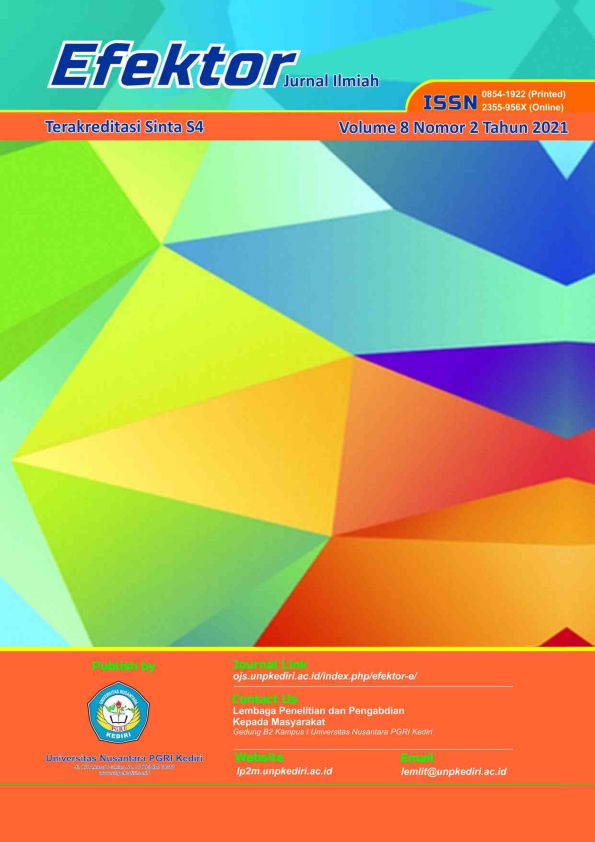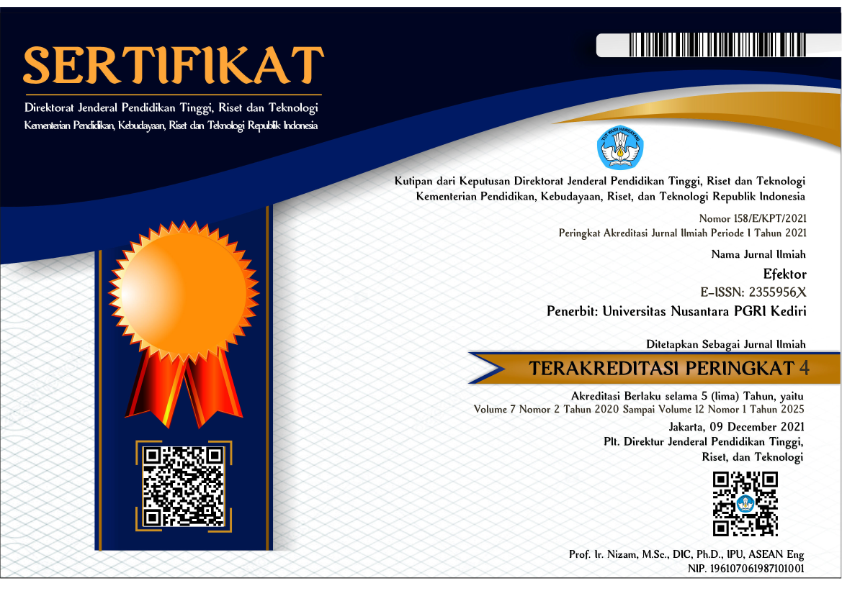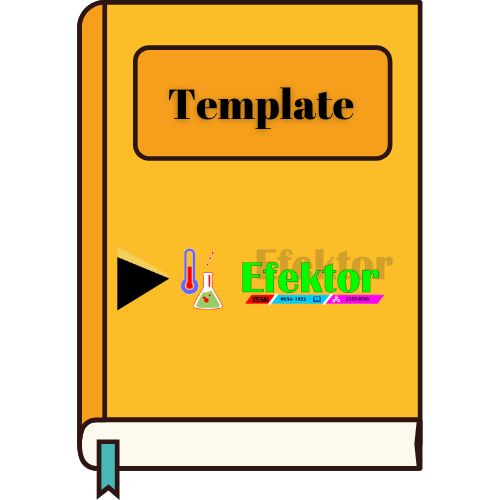Bermain Dengan Media TASRU (Kertas Kokoru) Untuk Mengembangkan Motorik Halus Anak
DOI:
https://doi.org/10.29407/e.v8i2.16269Keywords:
Media,, Fine motor, TasruAbstract
Fine motor skills are very useful for children to complete activities in life, especially those related to skills. Fine motor development will train children to be skilled in using their hands and fingers and coordinating their eyes in a balanced way. However, children's fine motor skills will not develop just like that, so that if there is no stimulus from an early age, the child's fine motor skills will be very low. To overcome this, the activity of playing with tasru media (paper kokoru) provides the latest solution related to the development of children's fine motor skills. Based on these problems, this study aims to develop fine motor skills in early childhood by playing using Tasru media (Kokoru Paper). This study uses the Kemmis and Taggart model of classroom action research which consists of four stages, namely planning, implementation, observation, and reflection which is carried out in 3 cycles, namely Cycle I, Cycle II, and Cycle III. Based on the data obtained in the first cycle of 50% which is classified in the category is still low. Furthermore, in the second cycle there was an increase of 14% so that it became 64% but did not meet the learning completeness criteria. Then in the third cycle there was another increase of 19% so that the achievement of the percentage in the third cycle was 83% and had exceeded the learning mastery of 75%. So it can be concluded that playing with Tasru media (Kertas Kokoru) can develop fine motor skills of children in group B PAUD (KB) AL-FIKR Banaran Kediri City.
References
Arikunto dadang iskandar. (2015). Penelitian Tindakan kelas yang mempunyai empat tahap yaitu perencanaan, pelaksanaan, pengamatan, dan refleksi.
Kementerian Pendidikan dan Kebudayaan Republik Indonesia. (2014). sifat-sifat kemampuan motorik halus anak usia 5 sampai 6 tahun adalah anak-anak dapat menarik yang ditunjukkan dengan pikirannya, meniru bentuk, menyelidiki dengan media dan latihan yang berbeda, menggunakan alat tulis dan peralatan makan secara efektif.
Suryani, R. (2014). Kerajinan Kokoeu Untuk Anak (Arcitra (ed.)).
Wulandari, S., & Riyanto, A. A. (2018). Perluas Inovasi Melalui Media Kertas Kokoru pada Remaja Di TK Kartika Xix-43 Cimahi. CERIA (Brilliant Lively Responsive Imaginative Versatile), 1(3), 52. https://doi.org/10.22460/ceria.v1i3.p52-65
Tedjasaputra, M. S. (2001). Bermain, Mainan, dan Permainan. Jakarta:PT Grasindo
Departemen Pendidikan Nasional. (2007). Pedoman Pembelajaran: Bidang Pengembangan Fisik - Motorik di Taman Kanak - Kanak. Jakarta: Departemen Pendidikan Nasional.
Aqib, Zainal. 2009. Penelitian Tindakan Kelas. Yrama Widya : Bandung.
Suyanto, Slamet. 2005. Proses Perkembangan Anak Usia Dini. Jakarta
Suharsimi Dkk. 2009. Peneliian Tindakan Kelas. Bumi : Jakarta
Endah. 2017. Perkembangan Motorik Kasar dan Motorik Halus. Http://Pembelajaran guru.workpress.com/2008/05/25/Perkembangan Motorik Kasar dan Perkembangan Motorik Halus.
Amalia, M., Pransiska, R., & Yulsofriend, Y. (2009). Pengaruh Kreasi Kertas Kokoru Terhadap Perkembangan Kreativitas Anak Di Taman Kanak-Kanak Yakin Ringan-Ringan Kabupaten Padang Pariaman. Jurnal Ilmiah POTENSIA, 4(2), 78-86. https://doi.org/10.33369/JIP.4.2.78-8
Hendraningrat, D. P. F. (2019) “Implementasi Kegiatan Menggulung, Menggunting, Menempel (3M) Melalui Kegiatan Bermain Kokoru Di Taman Kanak-Kanak Seroja Iman Samarinda,” Pendidikan Anak Usia Dini, 10, hal. 109-116
Downloads
Published
Issue
Section
License
Authors who publish with this journal agree to the following terms:
- Copyright on any article is retained by the author(s).
- The author grants the journal, the right of first publication with the work simultaneously licensed under a Creative Commons Attribution License that allows others to share the work with an acknowledgment of the work’s authorship and initial publication in this journal.
- Authors are able to enter into separate, additional contractual arrangements for the non-exclusive distribution of the journal’s published version of the work (e.g., post it to an institutional repository or publish it in a book), with an acknowledgment of its initial publication in this journal.
- Authors are permitted and encouraged to post their work online (e.g., in institutional repositories or on their website) prior to and during the submission process, as it can lead to productive exchanges, as well as earlier and greater citation of published work.
- The article and any associated published material is distributed under the Creative Commons Attribution-ShareAlike 4.0 International License













